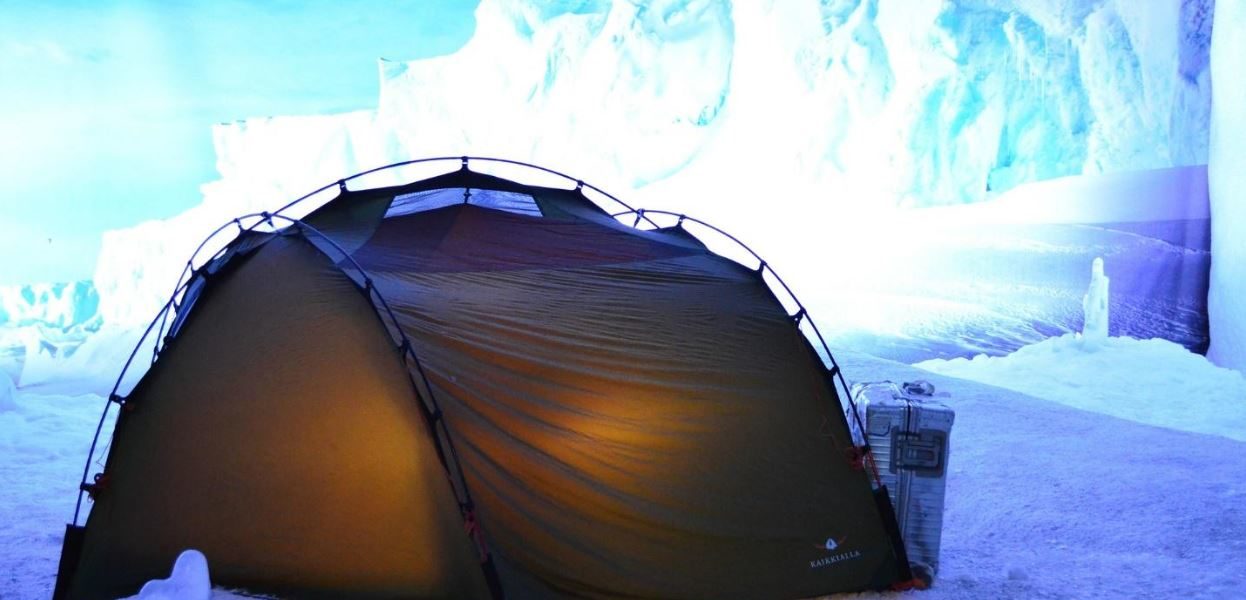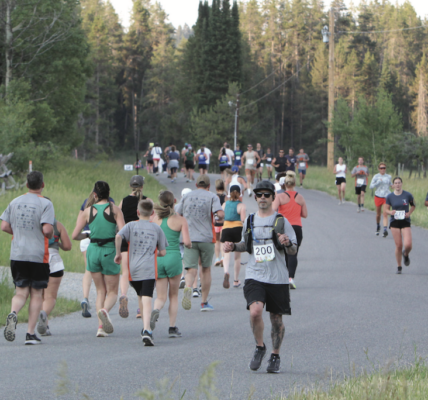- Bring Extra Food & Drink
Remember to stay hydrated and eat plenty of carbs. It’s easy to get dehydrated in the winter,since the air is dry and you aren’t visibly sweating. If you’re cold, eating can help increase body temperature. Bring extra water and ready-to-eat food. Keep a pot of water available for hot beverages and soups; eat as many hot meals as possible. - Choose the Right Tent
You’re going to want to invest in a four-season tent before heading off to camp. These seal you off from snow and wind, and they have the infrastructure needed to support the heavy snowfall you may encounter. Double-wall four-season tents will provide you with an extra layer of warmth, while also reducing condensation. You’ll want a separate tent to act as the kitchen. A floorless tent or tarp will create a comfortable, protected place to eat your meals. - Create a Warm Sleeping Situation
It’s imperative that you choose the right sleeping bag for winter camping. If you don’t want to invest a ton of money into a new weather-proof sleeping bag, buy a sleeping bag liner. This can increase the temperature rating of different types of sleeping bags. You’ll also want to use sleeping pads. These will insulate you from the frozen ground, preventing the transfer of body heat. If you don’t have access to sleeping pads, foam floor tiles or cardboard make solid alternatives. - Use Proper First Aid
Like all outdoor excursions, winter camping requires a first aid/medical kit. These can be purchased ready-made at a variety of retailers, but you’ll still want to bring a few extra items specifically for winter conditions: a gallon or more of water, heating fuel, a fire extinguisher, canned food, and extra medication.
Location Tips
- Avoid the Risk of Avalanche
It’s very important to make sure that you’re not on or below a slope of snow that could avalanche. Check the conditions before your trip and stay alert for extreme changes in temperature and precipitation in the region. It’s also a good idea to research recent changes in the area, such as closed trails and other obstacles. Contact local rangers to determine where their closest station is and see if they have any updates on the area. - Avoid Snow Patches
Depending on conditions, you may or may not want to clear away the snow at your campsite. If areas of snow are patchy and some of the ground below is exposed, we recommend clearing away the snow and setting up camp on the bare ground. However, if there is too much snow to do this, pack it down to create a flat surface on which to set up your tent. - Determine Sun Exposure
We recommend strategically setting up camp in a spot that offers exposure to sunlight. This will not only help you warm up faster in the mornings, but will also keep your site comfortable throughout the day. - Keep a Record of Landmarks
Note certain landmarks you see on your way to the campsite, as well as around the camp. These will help you find your way back in case you’re ever caught out in the dark or an unexpected snowstorm.
Along with these winter camping tips, we also recommend double-checking your car before heading out on the trip. Your car’s engine in the winter can be fickle, and you don’t want to end up stranded in the cold. With this beginner’s guide to winter camping, you can start preparing for a fun (and warm) expedition!





